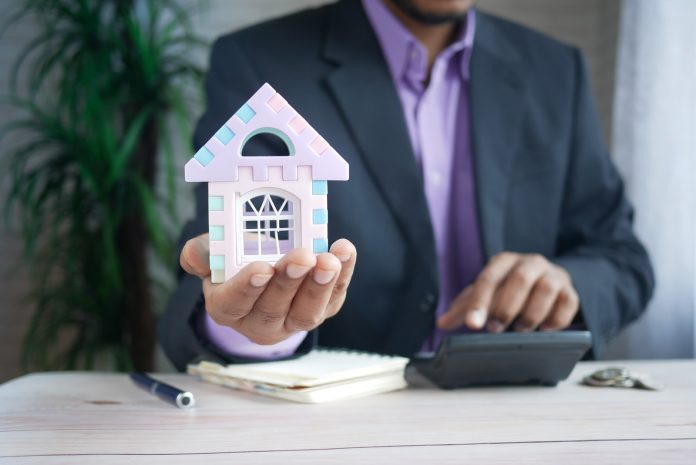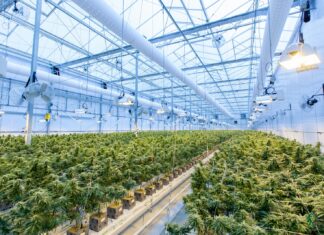
At the beginning of April 2022, the Federal Reserve indicated that inflation was getting a bit too intense for their liking. So, they did what many people assume they exist to do: They made the economy worse. But unlike all the other times they are accused of doing this, it was on purpose.
But just how did they make the economy worse? And why? Well, their “how” is that they increased interest rates. And the “why” is that if the economy grows too fast, it can be destructive to the livelihood of the average person. But that is a lot of information.
Let’s slow down here. We are here to talk about how these interest rates affect the real estate market. So, let’s talk about that. And let’s begin by going over what interest rates are.
What are Interest Rates?
The interest rate in this context is the interest rate that the Federal Reserve has control over: Specifically, interest rates on bank accounts. As you might know, when you leave money in a bank account, it accrues “interest”. The Federal Reserve determines this amount directly.
This amount is actually the product of trading. When you put money in a bank, that bank can do whatever it wants with that money. As long as you can withdraw your money when you want, they can trade your money for stocks, invest in real estate, or anything else.
They give you a portion of the profits that they got from using your money.
What you might not know is that the larger the amount of money you leave in the bank, the larger the amount of interest. As a result, billion-dollar corporations can make tons of money off of interest just by leaving their money in the bank. So, given that, why does raising interest rates slow down the economy so much? After these interest rates changed, stocks went way down.
How Do Interest Rates Affect the Economy?
The reason the economy saw a slump after the interest rate hike was that even though an interest rate hike is good for the economy at large, it is bad for the banks. The finances of banks are reliant on very specific interest rates. With higher interest rates, they lose more money.
This makes sense when you think about it: If a billionaire bank account is gaining millions from interest, then the bank that hosts them is losing millions. And if interest rates increase, they lose more money. Now the effect this has on real estate begins to crystalize.
How do Interest Rates Affect Real Estate?
Remember, most people buy houses through loans called a “mortgage”. This is a loan taken out from a bank. But if the bank is losing money through paying interest rates, then they have less money to risk on loans. This means more restrictive costs for home loans and other loans.
These restrictive costs accomplish two tasks: First, it makes sure that only people who can afford a home actually buy one. But it also means that the loan they take out always has to be bigger than it was previously. And this applies to more than just homes, but other properties too.
Want to open a business? Then a start-up loan will be tighter. Want to take out a bond, as many businesses do all the time? Good luck when no bank can afford to give them out. And while your billionaire bank account might be getting more interest at first, you better believe that banks will rewrite their own rules to make sure they do not get leached to death due to interest raises.
Why Would the Federal Reserve Do This?
The question on many people’s lips is: “Why?” And conspiracy theories certainly abound. But the Federal Reserve has said exactly why they are raising the interest rate: To combat inflation.
If you are old enough to read this article, then you probably remember that the world had a bit of an event in 2020. The pandemic hastened certain parts of the economy but left literally every other part of the economy struggling. The real interesting times came next year, in 2021.
2021 was a period of growth for basically every part of the economy. We were bouncing back incredibly well… Maybe too well. One issue with such rapid growth is that not everyone was growing at the same rate. Imagine that your shoulders suddenly get heavier. Your balance will not be disrupted unless one grows heavier faster than the other one.
The Dangers of Inflation
That imbalance can be bad for an economy as well. If part of the economy is appreciating in value while another part is losing value, then the part that is gaining value will have an unjust place in society. Basically, the Federal Reserve wants to keep people fair in the economy.
A rising economy was threatening inflation as house prices went up, food went up, and basically every part of the cost of living got more expensive. So, the Federal Reserve made the economy tighter. This reined in the parts of the economy that were expanding too fast to control.
The end result is an economy that is seeing massive shrinkage. Some people even worry that there might be a recession as a result of these rate hikes. While others think that the rate hikes are too little too late to stop the insurrection.
If you need to sell your house to someone you trust, then trust Teifke: https://www.teifkerealestate.com/we-buy-houses-corpus/
Conclusion
The ecosystem of the economy is a tough one to navigate. But the basics are this: The Federal Reserve raised the amount of money the bank rewards people. By doing this, they made it harder for banks to issue loans and bonds, both of which have an integral place in the economy.
The goal was to control inflation, and they might be doing that. They might also be causing a market crash. Sadly, one of the only things we can do about that crash is wait and see it out.








